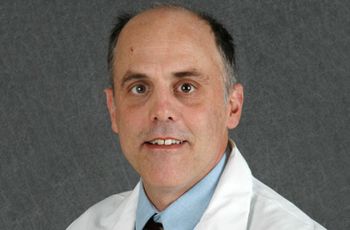Medicine
Dr. Robert Jayes, associate professor of Medicine at the GW School of Medicine and Health Science, comments in an article about the dangers of seniors undergoing too many tests.
According to the American Academy of Dermatology, roughly 50 million men and as many as 30 million women in the United States experience some form of hereditary hair loss.
The concept of “flow” is a defining characteristic for Ramesh Mazhari. As an interventional cardiologist, she is dedicated to restoring and improving patient blood flow to the heart. As a researcher, she has transitioned almost effortlessly from one new idea to the next.
A lot of things seem to walk away from Katalin Roth’s office, which, she admits, is “due for a clean.” But a simple greeting card isn’t one of them. She locates it swiftly, plucks it off the bulletin board, and reads it aloud.
Dr. Katherine Chretien, associate professor of Medicine in the GW School of Medicine and Health Sciences, wrote an op-ed about the new labels on tobacco products and the efforts of the FDA to stop people from smoking.
WASHINGTON — Kristina Demas, a third year medical student at The George Washington University School of Medicine and Health Sciences, was recently selected to receive the 2011 Medical Student Rotation Award from the American Society of Clinical Oncology (ASCO) and Susan G. Komen for the Cure.
WASHINGTON - DC Public Library users and employees are the recipients of improved emergency services with a donation of automated external defibrillators (AEDs) at all 25 locations, thanks to a gift from the George Washington University Cheney Cardiovascular Institute’s “ReStart DC” program.
Handheld ultrasound from new pocket-sized devices now allows cardiac imaging to be performed in locations previously inaccessible to traditional ultrasound. GW researchers have shown that high quality ultrasound heart images can be acquired in a remote setting and transmitted via the internet,…
New research from Michael Irwig, M.D., assistant professor of Medicine in the School of Medicine and Health Sciences, shows some men can have persistent sexual side effects lasting five years after they stop taking the drug finasteride, commonly marketed as Propecia.
The thought first struck what Vinayak Jha, M.D., assistant professor of Medicine, calls his “ridiculous nerve.”


